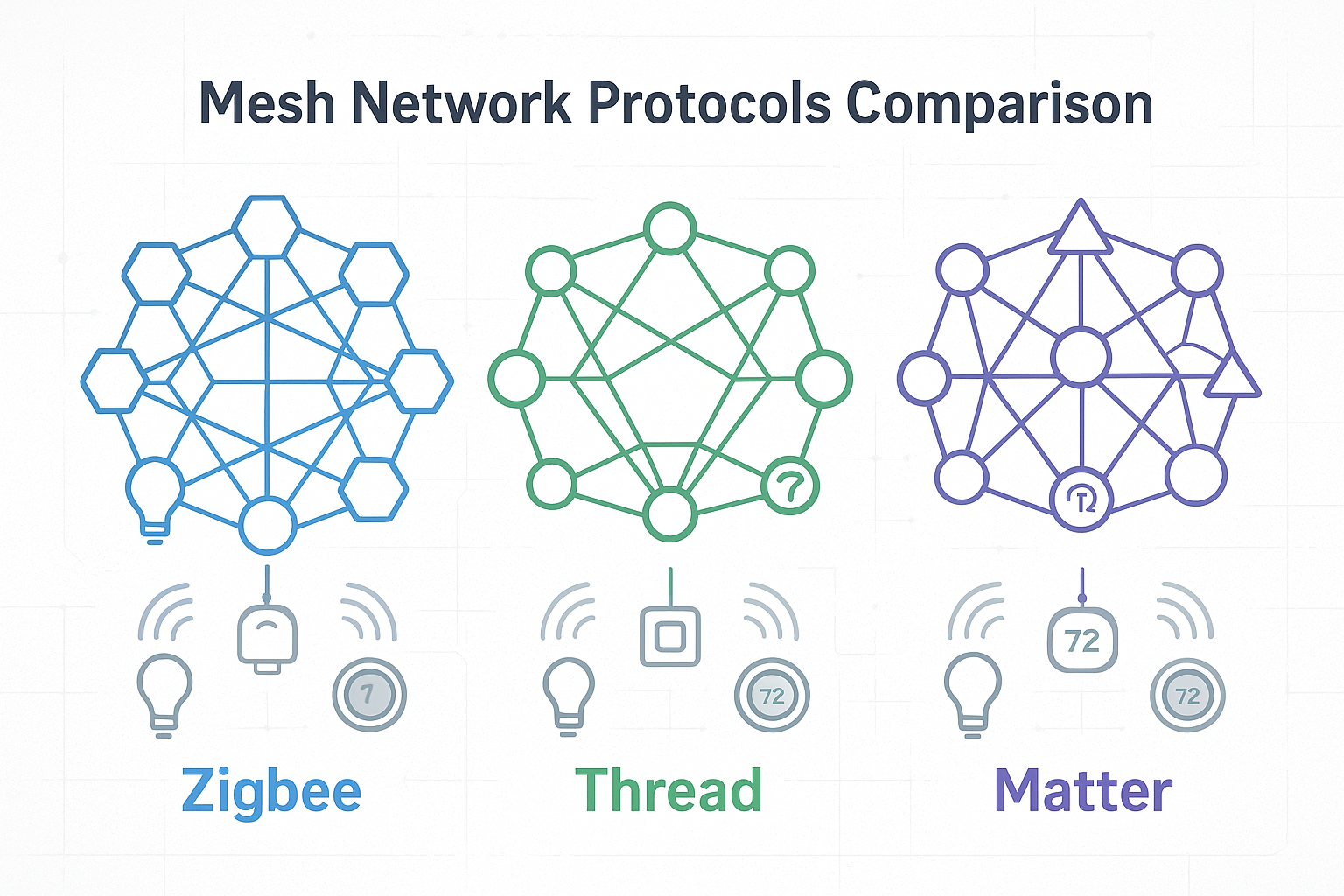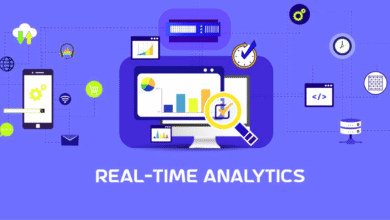Quantum IoT: The Future of Ultra-Fast, Ultra-Secure Connections
In a world increasingly driven by data, the convergence of quantum computing and the Internet of Things (IoT) is set to revolutionize the way we connect, compute, and communicate.

In a world increasingly driven by data, the convergence of quantum computing and the Internet of Things (IoT) is set to revolutionize the way we connect, compute, and communicate. Welcome to the era of Quantum IoT—a paradigm shift that promises ultra-fast, ultra-secure networks, redefining both technology infrastructure and digital trust in unimaginable ways.
Understanding the Internet of Things (IoT)
The Internet of Things (IoT) refers to the vast network of interconnected devices, from smart thermostats to industrial machinery, that gather, exchange, and process data without human intervention. As of 2025, there are billions of IoT devices deployed globally, each generating continuous streams of data.
IoT is transforming industries such as healthcare, transportation, energy, and agriculture, enabling real-time monitoring, predictive maintenance, and smart decision-making. However, this massive data flow also poses challenges, especially in terms of security, latency, and data processing.
Quantum Computing: A Brief Overview
Quantum computing is a cutting-edge field that leverages the principles of quantum mechanics to process information in fundamentally different ways than classical computers. Traditional bits are replaced by quantum bits, or qubits, which can exist in multiple states simultaneously thanks to phenomena like superposition and entanglement.
This allows quantum computers to solve complex problems at unprecedented speeds—problems that would take traditional computers millennia to crack. While still in early stages, companies like IBM, Google, and D-Wave have already made significant strides in building quantum processors.
The Marriage of Quantum Computing and IoT
When quantum computing and IoT converge, we enter a new frontier—Quantum IoT (QIoT). This fusion combines the computational power of quantum systems with the ubiquity and versatility of IoT devices. The result? Ultra-fast, ultra-secure connections that can support the ever-increasing demands of modern applications.
Quantum IoT has the potential to:
-
Accelerate data processing across distributed networks.
-
Provide unbreakable encryption for data transmission.
-
Enhance machine learning and AI within IoT ecosystems.
-
Reduce latency in high-demand applications such as autonomous vehicles and telemedicine.
How Quantum IoT Enhances Security
One of the most pressing concerns in the current IoT landscape is cybersecurity. Traditional encryption methods, like RSA and ECC, are vulnerable to future quantum attacks. Quantum computers could theoretically break these encryptions in minutes.
Enter Quantum Key Distribution (QKD)—a technology that uses the principles of quantum physics to generate and share encryption keys in a way that any interception attempt changes the state of the data, thereby alerting the system. In Quantum IoT, QKD can be embedded into device firmware and network infrastructure, ensuring data integrity and confidentiality from end to end.
This level of quantum security makes QIoT ideal for sectors like finance, defense, and critical infrastructure, where data breaches can be catastrophic.
Ultra-Fast Data Processing with Quantum Acceleration
Another transformative benefit of Quantum IoT is the ability to process massive amounts of data with lightning speed. IoT devices generate an overwhelming volume of real-time data, often too much for traditional systems to handle efficiently.
By integrating quantum processors into IoT networks, organizations can leverage algorithms optimized for quantum parallelism, drastically reducing computation time. This is particularly useful in scenarios requiring immediate decision-making, such as
-
Smart city traffic control
-
Emergency response coordination
-
Industrial automation
-
Energy grid optimization
The speed and scalability of QIoT make it uniquely suited for such mission-critical applications.
Applications of Quantum IoT Across Industries
Healthcare
In healthcare, Quantum IoT can revolutionize remote patient monitoring, drug discovery, and genomic analysis. Quantum-enhanced devices could analyze biomedical signals in real-time with unparalleled precision, leading to faster diagnoses and personalized treatments.
Smart Cities
Urban centers are becoming smarter with interconnected systems for traffic, utilities, and public safety. Quantum IoT can optimize these systems by providing real-time analytics and predictive modeling, resulting in improved efficiency, reduced congestion, and better resource management.
Manufacturing and Supply Chain
In manufacturing, Quantum IoT can help manage supply chains, monitor production lines, and detect equipment failures before they happen. The predictive maintenance capabilities enabled by QIoT can save millions in downtime and repair costs.
Finance and Banking
The financial sector can use Quantum IoT to enhance fraud detection, risk analysis, and algorithmic trading. QIoT networks could monitor millions of transactions per second, identifying anomalies in real-time and ensuring compliance with regulatory standards.
Defense and Aerospace
National defense and aerospace sectors demand the highest levels of security and real-time data processing. Quantum IoT can power secure communication systems, autonomous drones, and satellite networks, providing a strategic edge in both intelligence and operations.
Challenges in Implementing Quantum IoT
Despite its promise, Quantum IoT faces several barriers to mainstream adoption:
Hardware Limitations
Quantum computers require extremely cold environments and are sensitive to environmental noise, making their integration with IoT hardware complex. Developing miniaturized, robust quantum processors suitable for field deployment remains a major challenge.
High Costs
The development and deployment of quantum infrastructure are expensive. Organizations need significant capital investment to build and maintain QIoT systems, which could slow down adoption, especially for small and medium enterprises.
Standardization and Interoperability
Quantum IoT lacks standardized protocols and frameworks. Without a universal standard, ensuring device compatibility, data consistency, and interoperability across vendors becomes difficult.
Skill Gap
Building and maintaining QIoT systems requires highly specialized knowledge in quantum physics, cybersecurity, and IoT engineering. The current shortage of qualified professionals could delay widespread implementation.
Global Efforts and Developments
Governments and tech giants worldwide are heavily investing in quantum IoT research. For instance:
-
The European Union’s Quantum Flagship Program is funding projects on quantum networks and secure communications.
-
The U.S. Department of Energy is working on a national quantum internet infrastructure.
-
Companies like Huawei, IBM, and Intel are exploring hybrid models integrating quantum processors with existing IoT ecosystems.
These initiatives are laying the groundwork for scalable, interoperable, and secure quantum IoT networks.
The Future of Quantum IoT
Looking ahead, Quantum IoT is poised to become a cornerstone of next-generation technology. As quantum hardware becomes more accessible and efficient, its integration with IoT devices will reshape how we interact with our environment.
We can expect to see
-
Quantum-powered edge computing for real-time insights.
-
Zero-trust security architectures built on QKD.
-
Interplanetary IoT networks for space exploration.
-
Decentralized autonomous systems governed by quantum logic.
The synergy between quantum computing and IoT will drive innovations that were previously confined to science fiction.
Conclusion
Quantum IoT represents a monumental leap forward in the evolution of digital connectivity. By marrying the speed and computational power of quantum technology with the pervasive data collection and automation capabilities of IoT, we unlock a future of ultra-fast, ultra-secure networks capable of transforming every aspect of society.
From secure medical diagnostics to autonomous transportation and smart infrastructure, the possibilities are boundless. As research progresses and quantum systems mature, Quantum IoT will shift from theoretical promise to practical reality, redefining what it means to be truly connected in the 21st century.











